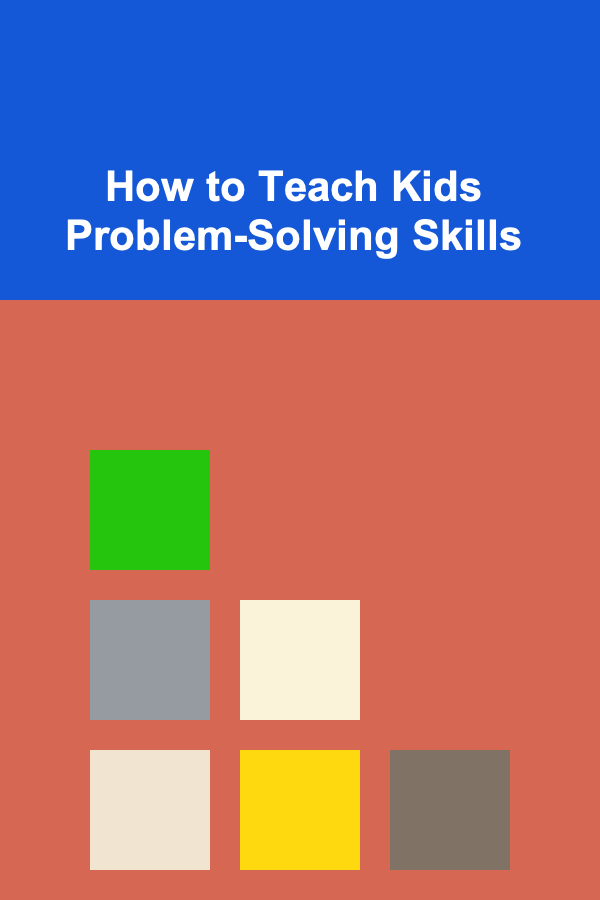
How to Declutter Your Books and Media Collection: A Deep Dive
ebook include PDF & Audio bundle (Micro Guide)
$12.99$6.99
Limited Time Offer! Order within the next:

Our books and media collections are often reflections of ourselves. They represent our interests, our aspirations, and our memories. However, over time, these collections can grow into unwieldy, overwhelming masses that weigh us down both physically and mentally. Decluttering your books and media isn't just about tidying up; it's about curating a collection that truly serves you, aligns with your current life, and brings you joy. It's about creating space for the new while honoring the past.
This comprehensive guide will delve into the process of decluttering your books, DVDs, CDs, vinyl records, and other forms of media, providing practical strategies, philosophical considerations, and tips for making the process both efficient and meaningful.
Why Declutter Your Books and Media?
Before diving into the "how," let's explore the "why." Understanding the benefits of decluttering can provide the motivation you need to tackle this potentially daunting task.
- Physical Space: The most obvious benefit is reclaiming physical space. Books and media take up a significant amount of room, and decluttering can free up valuable space in your home. This can lead to a more open, airy, and organized living environment.
- Mental Clarity: Clutter can contribute to stress and anxiety. A cluttered bookshelf can be a constant visual reminder of unfinished projects, unread books, and past interests. Decluttering can reduce mental clutter and create a sense of calm.
- Financial Benefits: Decluttering can also be financially rewarding. You can sell books and media online, at used bookstores, or through consignment shops. The money you earn can be used to purchase new items, pay down debt, or invest in experiences.
- Reconnecting with Your Collection: The decluttering process forces you to engage with your collection in a meaningful way. You'll rediscover forgotten treasures, reaffirm your interests, and gain a better understanding of your personal tastes.
- Sharing with Others: Donating books and media to libraries, schools, or charitable organizations allows you to share your love of reading and entertainment with others. It gives your items a new life and helps to foster a sense of community.
- Reduced Environmental Impact: By donating or recycling your unwanted items, you can reduce waste and contribute to a more sustainable lifestyle. Manufacturing books and media consumes resources, and repurposing them helps to conserve those resources.
The Decluttering Process: A Step-by-Step Guide
Decluttering your books and media can seem overwhelming, but breaking it down into smaller, manageable steps can make the process less daunting.
1. Preparation and Mindset
Before you even touch a single book, it's crucial to prepare yourself mentally and logistically.
- Set Realistic Goals: Don't try to declutter your entire collection in one day. Start with a small section or a specific category (e.g., paperbacks, DVDs of movies you actively dislike). Setting achievable goals will keep you motivated and prevent burnout.
- Gather Your Supplies: You'll need boxes or bags for donations, a container for items to sell, cleaning supplies (dust cloth, vacuum), and a notebook and pen for making notes.
- Establish Your Criteria: Define your criteria for what to keep, donate, sell, or discard. Consider factors like personal value, usefulness, aesthetic appeal, and condition. We will explore detailed questions to ask yourself later.
- Time Management: Allocate specific blocks of time for decluttering. Schedule these sessions like any other important appointment. Even short, focused sessions can make a significant difference over time.
- Embrace the Process: Try to approach the decluttering process with a positive attitude. View it as an opportunity to curate a collection that truly reflects your current life and brings you joy. Remember the benefits we discussed earlier.
2. The Sorting Process: The Core of Decluttering
This is where the real work begins. Take each item in your collection and ask yourself a series of questions to determine its fate.
- Handle Each Item: This is critical. Don't just glance at the spines of books. Take each item in your hands, feel it, and consider its relevance to your life.
- The "Marie Kondo" Method: Does it Spark Joy?: This popular method encourages you to keep only the items that "spark joy." While this approach can be effective, it may be too simplistic for some people. Consider adding other criteria to your decision-making process.
- Key Questions to Ask Yourself:
- Have I used/read/watched/listened to this item in the past year (or two)? If the answer is no, it's a strong indication that it's time to let it go. Exceptions can be made for sentimental items or reference materials.
- Do I plan to use/read/watch/listen to this item in the near future? Be honest with yourself. Don't hold onto items "just in case." Consider whether you could easily borrow or access the item from a library or online if you needed it.
- Is this item easily replaceable? If you can easily purchase a new copy or access it digitally, there's less reason to keep a physical copy.
- Does this item hold sentimental value? If the item evokes strong positive memories or emotions, it may be worth keeping, even if you don't use it regularly. However, be careful not to let sentimentality clutter your home.
- Is this item useful or informative? Reference books, textbooks, and how-to guides can be valuable resources. But if they're outdated or irrelevant to your current needs, it's time to let them go.
- Is this item aesthetically pleasing? Some books and media are beautiful objects in themselves. If you enjoy looking at them and they contribute to the aesthetic of your home, they may be worth keeping.
- Am I keeping this item out of guilt or obligation? Don't hold onto items that you feel obligated to keep because they were a gift or belong to someone else. It's okay to let go of items that no longer serve you.
- Would someone else benefit more from this item? If you know someone who would truly appreciate and use the item, consider donating it to them directly.
- Categorize Your Items: As you go through each item, place it into one of the following categories:
- Keep: Items that you use regularly, enjoy, or hold significant value.
- Donate: Items that are in good condition and can be used by others.
- Sell: Items that have resale value.
- Discard/Recycle: Items that are damaged, outdated, or have no value.
3. Dealing with Specific Types of Media
Each type of media presents its own unique challenges and considerations when decluttering.
Books
- Paperbacks vs. Hardcovers: Consider the space they take up. Paperbacks are often easier to part with due to their lower perceived value.
- Fiction vs. Non-Fiction: Think about how often you revisit non-fiction books. If you haven't used them as a reference in years, they might be good candidates for donation.
- Cookbooks: Do you actually use the recipes? Or are you relying more on online resources?
- Children's Books: If your children have outgrown them, consider donating them to schools, libraries, or daycare centers.
- Signed Editions/First Editions: These may hold significant monetary or sentimental value. Research their market value before making a decision.
DVDs and Blu-rays
- Streaming Services: With the rise of streaming services, many DVDs and Blu-rays have become redundant. Consider how often you actually watch physical copies.
- Duplicate Copies: Do you have multiple copies of the same movie or TV show?
- Genre: Be honest with yourself about the genres you actually enjoy. Are you holding onto action movies you never watch or chick flicks you cringe at?
- Condition: Check the discs for scratches or damage. Damaged discs are unlikely to be sold or donated.
CDs
- Digital Music: Similar to DVDs, the rise of digital music has made CDs less relevant. Consider ripping your CDs to your computer and then donating or selling the physical copies.
- Genre: Are you still listening to the same music you did in high school? Be honest about your current musical tastes.
- Condition: Check the discs for scratches or damage.
- Compilations: Homemade CDs or burned copies may not have resale value, but the cases can be used to store other items.
Vinyl Records
- Condition: Vinyl records are particularly susceptible to damage. Check for scratches, warping, and other imperfections.
- Rarity and Value: Some vinyl records are highly sought after by collectors. Research the market value before selling or donating. Factors influencing value include pressing date, artist, album title, condition, and whether it's a limited edition.
- Sentimental Value: Vinyl records often hold strong sentimental value. Consider the memories and emotions associated with each record.
- Genre: Do you still enjoy listening to the same genres on vinyl?
Other Media (Magazines, Video Games, etc.)
- Magazines: Unless you're a collector or have a specific need for back issues, magazines are generally easy to discard. Recycle them responsibly.
- Video Games: Console games can be sold or traded in. PC games often have limited resale value unless they're rare or collectible.
4. The Aftermath: Taking Action
Once you've sorted your items, it's time to take action and remove the unwanted items from your home.
- Donations:
- Libraries: Libraries are always grateful for donations of books and media. Contact your local library to inquire about their donation policies.
- Schools: Schools can use books and media for their libraries, classrooms, or fundraising events.
- Charitable Organizations: Organizations like Goodwill and the Salvation Army accept donations of books and media.
- Hospitals and Nursing Homes: These facilities often have libraries or reading rooms for patients and residents.
- Little Free Libraries: These small, community-based libraries are a great way to share books with your neighbors.
- Selling:
- Online Marketplaces: Websites like eBay, Amazon, and Facebook Marketplace are great for selling books and media online.
- Used Bookstores: Many used bookstores will buy books and media. However, they typically offer lower prices than online marketplaces.
- Consignment Shops: Consignment shops will sell your items for you and give you a percentage of the sale price.
- Garage Sales/Yard Sales: These can be a good way to get rid of a large number of items quickly.
- Recycling/Disposal:
- Recycle Paper Products: Recycle books and magazines that are damaged or outdated.
- Properly Dispose of Electronic Waste: Dispose of CDs, DVDs, and other electronic media properly to prevent environmental damage. Many communities have electronic waste recycling programs.
- Photographing Your Collection: Before you donate, you might want to photograph your collection (or specific items) for memory's sake. A visual record can sometimes ease the feeling of loss.
5. Organizing What's Left: Creating a System That Works
Once you've decluttered, it's time to organize your remaining collection in a way that is both functional and aesthetically pleasing.
- Choose the Right Storage Solutions: Select bookshelves, cabinets, or other storage solutions that fit your space and style.
- Categorize Your Items: Organize your books and media by genre, author, or any other system that makes sense to you.
- Alphabetize: Alphabetizing your books and media can make it easier to find specific items.
- Display Your Favorites: Showcase your favorite books and media in a prominent location.
- Create a Reading List/Watch List: Make a list of the books you want to read and the movies/TV shows you want to watch. This will help you stay focused and motivated.
- Maintain Your Collection: Regularly dust and clean your books and media to keep them in good condition. This is also a good opportunity to reassess your collection and identify any items that you're no longer using or enjoying. Make decluttering a regular part of your routine (e.g., once a year).
Common Challenges and How to Overcome Them
Decluttering can be challenging, both emotionally and practically. Here are some common obstacles and strategies for overcoming them.
- Sentimental Attachment: It's natural to feel attached to books and media that hold sentimental value. Acknowledge these feelings, but don't let them paralyze you. Consider taking photos of items you're struggling to let go of, or creating a memory box for a few special items.
- Fear of Regret: You may worry that you'll regret getting rid of an item later. Remind yourself that you can always borrow or purchase a new copy if you really need it. Also, focus on the benefits of decluttering, such as the extra space and mental clarity.
- Lack of Time: Decluttering can be time-consuming. Break the task down into smaller, manageable steps. Even short sessions can make a difference over time.
- Procrastination: It's easy to put off decluttering, especially if you're feeling overwhelmed. Set a specific date and time to start, and stick to your schedule. Consider enlisting the help of a friend or family member to keep you motivated.
- Disagreement with Family Members: If you share your space with others, it's important to communicate and collaborate on the decluttering process. Respect each other's belongings and find a compromise that works for everyone.
Digital Media and the Future of Decluttering
While this guide focuses primarily on physical media, it's important to acknowledge the growing importance of digital media in our lives. Decluttering digital media is just as important as decluttering physical media.
- Deleting Unused Files: Go through your computer, tablet, and smartphone and delete any files that you no longer need. This includes documents, photos, videos, and apps.
- Organizing Digital Files: Create a system for organizing your digital files. Use folders, tags, and other organizational tools to keep your files organized and easy to find.
- Unsubscribing from Email Lists: Reduce the amount of email you receive by unsubscribing from email lists that you no longer find valuable.
- Cleaning Up Social Media: Unfollow accounts that you no longer find interesting or engaging. Delete old posts and photos that you no longer want to share.
- Cloud Storage Management: Review your cloud storage subscriptions. Do you really need that much space? Delete unnecessary files.
Conclusion: A Curated Collection is a Happy Collection
Decluttering your books and media collection is an ongoing process, not a one-time event. By regularly assessing your collection and letting go of items that no longer serve you, you can create a curated collection that reflects your current life, brings you joy, and enhances your well-being. Embrace the process, be honest with yourself, and enjoy the benefits of a clutter-free home and a more focused mind. Remember, it's not about getting rid of everything, but about surrounding yourself with items that you truly value and appreciate.

How to Choose the Best Lighting for Your Bedroom
Read More
How to Use Natural Remedies for Pet Care at Home
Read More
How to Utilize Your Professional Expertise to Become a Part-Time Professional
Read More
The Brand Strategist's Toolkit: Proven Strategies for Brand Growth
Read More
How to Teach Kids Problem-Solving Skills
Read More
How to Conquer Your Monthly Finances: A To-Do List for Success
Read MoreOther Products

How to Choose the Best Lighting for Your Bedroom
Read More
How to Use Natural Remedies for Pet Care at Home
Read More
How to Utilize Your Professional Expertise to Become a Part-Time Professional
Read More
The Brand Strategist's Toolkit: Proven Strategies for Brand Growth
Read More
How to Teach Kids Problem-Solving Skills
Read More